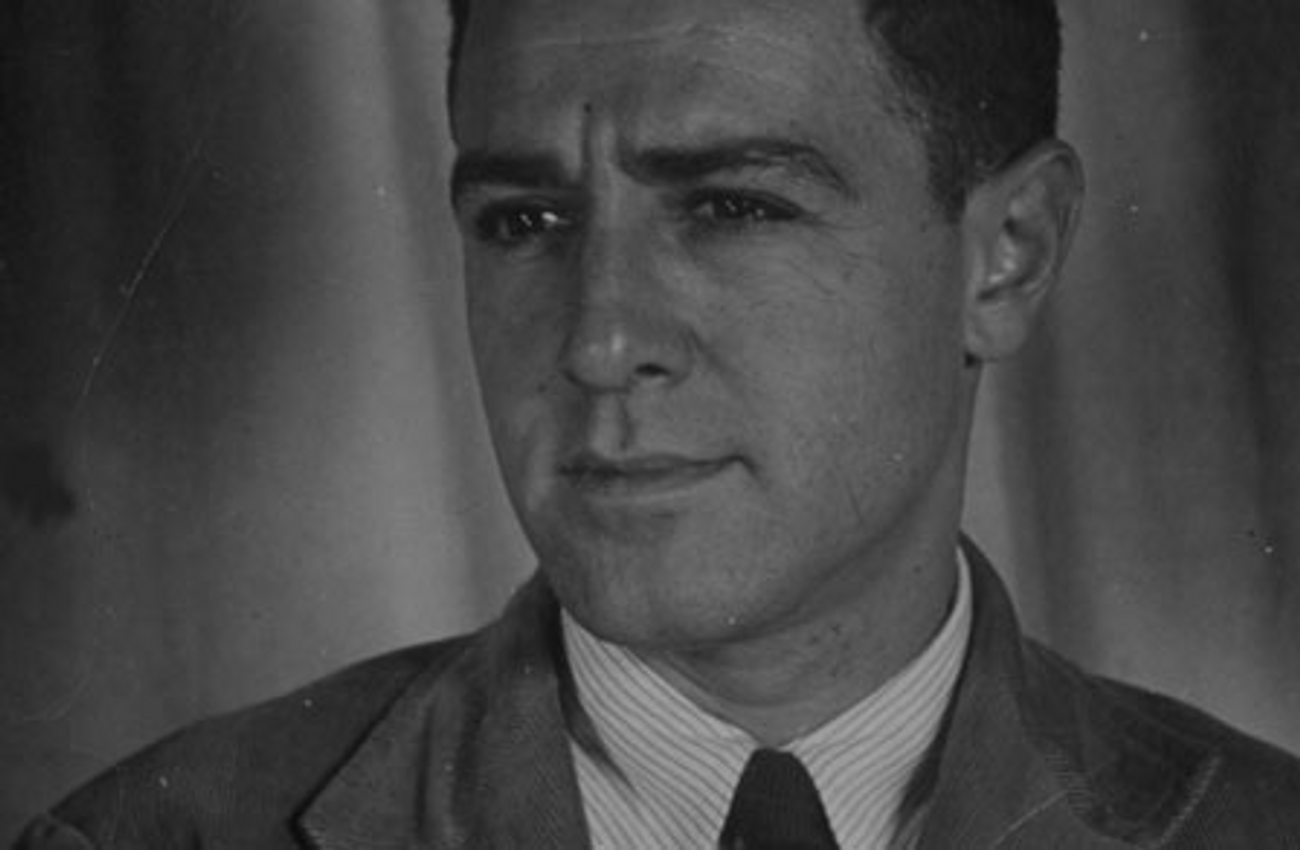The Alphabet
A commentary on Karl Shapiro’s poem



Literary reputation is notoriously fleeting, but few poets have gained it as quickly or lost it as completely as Karl Shapiro. Born in Baltimore in 1913, Shapiro was not yet 30 when The New Yorker hailed him as “the finest young American talent to appear in many seasons.” During World War II, he was serving in the U.S. Army in New Guinea when he wrote “V-Letter and Other Poems,” describing the horrors of war in formally elaborate verse. The book won the Pulitzer Prize in 1945, putting Shapiro ahead of contemporaries like Elizabeth Bishop, Robert Lowell and John Berryman in the race for fame. They soon lapped him, however, and when he died in 2000, his New York Times obituary was largely devoted to how obscure he had become. (Already in the 1980s one publication included Shapiro in a list of dead poets, prompting him to sue—and to title his memoir “Reports of My Death.”)
But for American Jewish literature, Shapiro still matters—not just as the first Jewish poet to win the Pulitzer, but as a fine example of his generation’s quandaries over religion and identity. American poetry was never as hospitable as fiction to Jewish styles and subjects; there have been no American Jewish poets of the stature of Bellow, Roth and Malamud (with the possible exception of a few great poems by Allen Ginsberg). But Shapiro put his Jewishness at the center of his work from the beginning. “University,” an early poem about his experiences as a student at the University of Virginia, begins on a defiant note: “To hurt the Negro and avoid the Jew/Is the curriculum.”
There was something similarly confrontational about Shapiro’s decision to title a 1958 selection of his work “Poems of a Jew.” Though he wasn’t religious, being a Jew was clearly essential to him. In the introduction to the book, however, he flailed at explaining why: “The Jewish identity, with or without religion, with or without history, is the significant fact,” Shapiro writes, and “the Jew...is man left over, after everything that can happen has happened.”
He’s more eloquent in his poem “The Alphabet,” a meditation on Hebrew whose opening words have stuck in my memory since I first read them years ago: “The letters of the Jews as strict as flames/Or little terrible flowers.” These are harsh images, and the rhythm of the lines adds to the feeling of unease—the smooth iambic pentameter of the first line giving way to the stutter of “little terrible.” “The Alphabet” is only 21 lines long, but it’s crowded with similarly uneasy descriptions; the Hebrew letters “bristle like barbed wire,” they are “twisting and tightening,” they are “dancing knives that carve.”
If Shapiro sees the letters as emblems of severity and constraint, that’s because he has transferred onto them his ideas and feelings about Judaism. When he writes “the chosen letters bristle like barbed wire/That hedge the flesh of man,” he evokes the idea that Jewish law is a harness on human weakness and appetite—and also, perhaps, a source of lingering irritation for American Jews who feel guilty about ignoring it.
“The Alphabet” contrasts the demanding “strictness” of Hebrew letters with pagan and Christian forms of beauty, which the poem presents as faintly corrupt. For Shapiro, the “tipsy idols” worshipped by the ancient Romans and the “still speaking embers of ghettoes,” reminders of the then-recent Holocaust, are both rebuked by the “tinder flowers of the Jews.” As tinder, those letters might be thought of as responsible for igniting the fires that burned down the ghettoes. But their flame is also able to light up what Shapiro, following Joseph Conrad, calls “the heart of darkness,” which is the human capacity for evil.
Shapiro probably didn’t know that the shape of the Hebrew letters has a mystical significance in Kabbalah, or that the Talmud speaks of the Torah of Moses being written in letters of black fire on white fire. But “The Alphabet” captures his almost atavistic sense, shared by many American Jewish readers, that Hebrew script is charged with meaning—even when we don’t know how to read it. —Adam Kirsch, March 3, 2020
Adam Kirsch is a poet and literary critic, whose books include The People and the Books: 18 Classics of Jewish Literature.